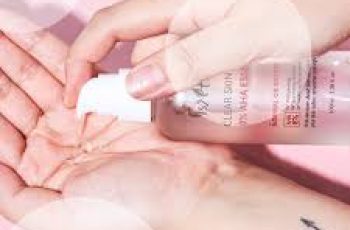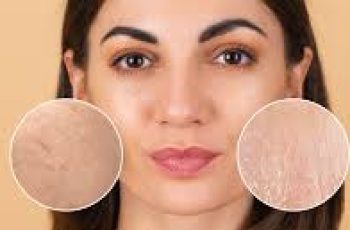
The Best Water to Wash Your Face With: Everything You Need to Know
Water seems simple, right? But when it comes to your face, not all water is created equal. From ice baths to tap water, we’re diving into which water is best for your skin.
Why Water Type Matters for Your Skin
You may think washing your face is as easy as splashing on any water. But the truth is, the type and temperature of water you use can significantly affect your skin.
The kind of water you choose depends on your Baumann Skin Type and other skincare products in your routine. Whether your skin is oily, sensitive, or dry, water choice matters.
Types of Water to Wash Your Face With
There are several types of water people use for cleansing:
Tap water, Filtered water, Distilled water, Bottled water, Micellar water, Thermal spring water
Let’s look at the benefits and drawbacks of each.
1. Tap Water
Tap water is the most accessible and budget-friendly. But if your tap water is hard, meaning high in calcium and magnesium, it might not be ideal for your skin.
Hard water can:
React with cleansers and make them more irritating
Damage your skin barrier over time
Leave mineral residue that can dull your skin
Soft water, on the other hand, contains fewer minerals and is gentler on sensitive skin.
💡 Tip: Search online for “tap water hardness in [your city]” to learn what’s in your water.
2. Filtered Water
Filtered water is a great compromise. It’s affordable, easy to install, and removes most harmful minerals and impurities.
Filters are available for sinks and showers and are ideal for people with:
Eczema, Rosacea, Hypersensitive skin
Using a water filter can make your skin feel cleaner and less irritated after washing.
3. Distilled Water
Distilled water is completely free of minerals and contaminants. It’s pure H₂O, and that can be good or bad.
Pros:
No reaction with your skincare products
Very gentle on sensitive or compromised skin
Cons:
Lacks any beneficial minerals
Can feel too “stripped” for some skin types
4. Bottled Water
Bottled water is another option, especially if it contains soothing minerals like selenium or strontium.
Avoid bottled water high in calcium or magnesium, which can irritate sensitive skin types. Check the label for mineral content before using.
5. Thermal Spring Water
This water is bottled directly from mineral-rich hot springs and often contains skin-calming ingredients.
It’s usually more expensive but helpful for:
Red, inflamed skin
Rosacea flare-ups
Skin healing after procedures
Some trusted brands even add their thermal water to facial sprays for on-the-go relief.
6. Micellar Water
Micellar water is not just plain water. It contains tiny oil molecules (micelles) that attract dirt, makeup, and excess oil.
It’s best for:
Removing makeup without rinsing
Sensitive or dry skin types
Quick cleansing when you’re on the go
Still, rinse it off if your skin feels sticky afterward.
What’s the Best Water Temperature to Wash Your Face?
Water temperature is just as important as water type.
🔥 Hot water feels relaxing but can:
Strip away natural oils
Damage your skin barrier
Trigger inflammation
❄️ Cold water can soothe irritation but may:
Reduce blood flow to the skin
Make skincare products less effective
🌡️ Lukewarm water is the sweet spot. It helps loosen dirt without shocking or irritating your skin.
Should You Wash Your Face With Only Water?
If you have very dry or inflamed skin, consider skipping cleanser in the morning. A gentle splash of lukewarm water might be all your face needs to start the day.
This is especially helpful if you have:
Active rosacea, Flaking or peeling skin, Skin on acne medication or retinoids, Just pat your skin dry gently with a soft towel.
What About Ice Water or Ice Baths?
Ice facials are trending, but they’re not suitable for everyone. Here’s when they can help—and when they don’t.
Good uses for ice water:
Right after dermal fillers to reduce bruising
After a sunburn or heat rash
To cool flushed, overheated skin
❌ Risks of ice water facials:
Can worsen rosacea
May damage the skin barrier in sensitive types
Reduces product absorption due to limited blood flow
Always consider your skin type before dunking your face in ice water.
Ice Face Rollers: Cool but Risky?
Ice rollers feel great, and they can reduce puffiness after procedures. But they’re not miracle tools.
Good for:
Reducing swelling after Botox or fillers
Soothing mild allergic reactions
Not helpful for:
Acne, Rosacea, Daily skincare needs
Use with caution, and avoid on broken or irritated skin.
What Water to Use If You Have Sensitive Skin?
If your skin is easily irritated, here’s a quick guide:
Very sensitive: Use thermal spa water at room temp
Mildly sensitive: Bottled or filtered water
Normal skin in soft water areas: Tap water is usually fine
Avoid extremes—no ice plunges or steaming-hot splashes.
How Water Affects Your Serums
Water matters before applying your serum. Why? Because minerals in water can react with ingredients in serums, reducing their effectiveness.
For best results:
Rinse off your cleanser with filtered or distilled water
Avoid hard water if using expensive serums
Consider thermal spa water if your skin is inflamed
This small step can make your active ingredients more effective.
Carbonated Water for the Face?
Some people use carbonated water to cleanse the skin, thanks to its slight acidity and tingle.
It may help with:
Removing dead skin cells, Boosting circulation
But it can also cause:
Dryness
Irritation in sensitive skin types
Try it once or twice a week if your skin is oily or dull, and stop if it stings.
Final Thoughts: Choose Wisely Based on Your Skin Type
Your skin is unique, and your water choice should match your skin’s needs.
Hard tap water can be problematic
Filtered or soft water is better for most people
Thermal and bottled waters are ideal for sensitive or healing skin
Lukewarm temperature is always best
If you’re using expensive skincare products, rinsing with the right water can help you get the most from them.
Quick Tips Recap
Use lukewarm water
Choose filtered or thermal water if your skin is sensitive
Avoid ice water unless calming flushed skin
Rinse off cleansers thoroughly
Don’t rely on hot water—it strips your barrier
Don’t skip researching your local water hardness
Remember: The water you use after applying your cleanser matters more than the one you use to apply it. Rinse well, and your skin will thank you.
For more expert skincare advice, visit us on social media or connect with Dr. Baumann on Reddit!


